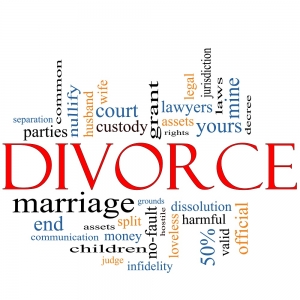What Happens When You File Divorce During Bankruptcy?
 When couples consider a divorce, they probably wonder what will happen to their bank accounts, homes and vehicles. It’s less common to think about what happens to the debt that you accrue as a couple. If you’re divorced or considering a divorce while going through bankruptcy, you should hire an Arizona bankruptcy attorney familiar with the process for debt division during divorce.
When couples consider a divorce, they probably wonder what will happen to their bank accounts, homes and vehicles. It’s less common to think about what happens to the debt that you accrue as a couple. If you’re divorced or considering a divorce while going through bankruptcy, you should hire an Arizona bankruptcy attorney familiar with the process for debt division during divorce.
Division of property in divorce
During divorce proceedings, the courts or mediator will evaluate the couple’s total net worth, including debts. The judge will make a call on how best to divide both assets and debts among the two individuals involved in the divorce. As a general rule, the court tries to divide assets and debts in an equal manner.
Division of property and debt all goes well unless there comes a time when one of the parties is unable to repay the debt assigned to them. Because both parties were originally named on the debt, creditors might come after the party in the divorce that was not assigned the debt.
While they can petition the court to step in and enforce the agreements that were set forth in the divorce, this can be a lengthy process and the creditors will not relent during this time. You could face liens on your personal property or legal action against you as you work to sort out the issue.
Most divorce attorneys recommend working to pay off debt before divorce because there is risk involved with dividing debt during divorce. Plus, if you have debt at the time of divorce it means you and your ex-spouse are still connected in a sense that you might not want to be connected in.
What happens to shared debt during bankruptcy
If you’ve undergone a divorce and were ordered to take on some of the debt from your marriage, your ex-spouse may be liable for that debt. Depending on how the debt was acquired during your marriage – if it included both of your names – your ex-spouse could be held liable for the debt once you commit Chapter 7 bankruptcy.
That’s because at that point, the creditors can no longer come after you for the money you owed. However, because you’re divorced, your ex-spouse is not part of the bankruptcy filing. While your ex-spouse is not part of your bankruptcy filing, they are still listed on the debt, which means a creditor can pursue them for repayment.
Things can get pretty complicated from there because the creditor can sue your ex-spouse for the money you owe and committed to as part of the divorce proceedings. However, your ex-spouse can sue you as well, and you could still be held responsible for that debt even after your debt is fully discharged under your Chapter 7 filing.
Chapter 13 bankruptcy works a bit differently in that it discharges both you and your ex-spouse from the debt as part of the process.
Click here for an article on can you file divorce and bankruptcy at the same time.
Child support and alimony during bankruptcy
One thing that you should know about your bankruptcy filing – whether Chapter 7 or Chapter 13 – is that it does not discharge unpaid child support or alimony that you agreed to as part of your divorce.
Regardless of what happens during your bankruptcy proceedings, you will be held liable to make these payments. If your income level has changed due to a loss of income or other hardship, you can go back to court to have your alimony or child support payments altered in light of this change. However, that court process is not in any way tied to your bankruptcy filing, which means you’ll need to go through a separate process.
To better understand how filing for bankruptcy will affect you (and your ex-spouse, if applicable) you should contact an Arizona bankruptcy attorney.

